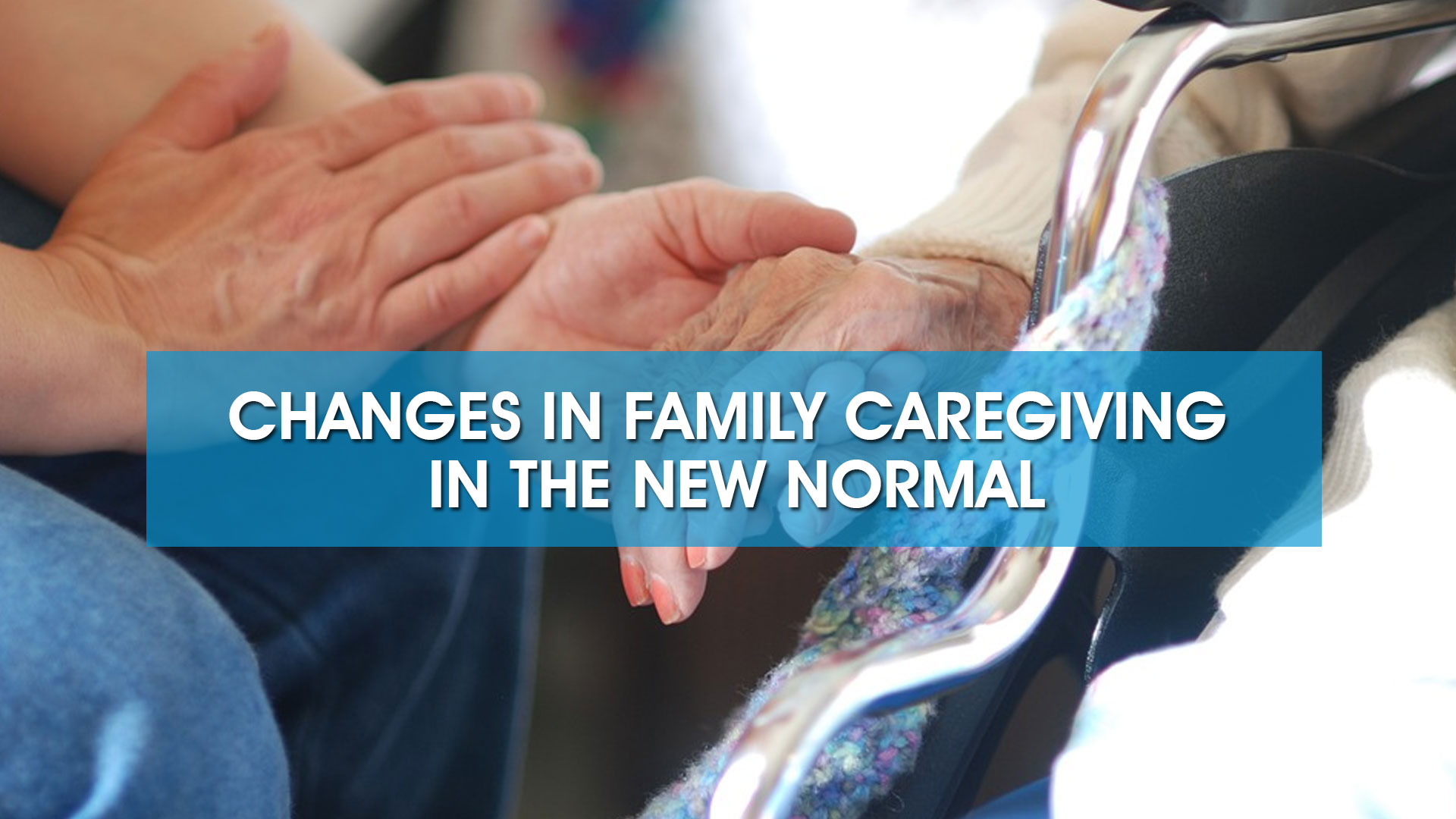Guide to Caregiving in the New Normal

Guide to Caregiving in the New Normal
In this time of a global crisis, people with underlying medical conditions as well as older adults are more likely to develop severe illnesses than other people. Naturally, the outbreak of the Covid-19 created significant changes in the caregiving system throughout the world—primarily unprecedented circumstances. The pandemic undoubtedly heightened our elderly loved ones’ vulnerability and even built new challenges encountered by caregivers. Family caregiving—even before the pandemic—is already hard enough. This is what Eleanor Gaccetta firmly affirms in her book, One Caregiver’s Journey.
Since the virus continues to evolve through mutations, caregivers continue to follow evolving preventive measures, reinforcing more stressors. It has boosted emotional and physical demands imposed on caregivers.
Caregiving is definitely not one-size-fits-all. To say otherwise, it can be challenging to keep navigating through the various hurdles when caring for our loved ones. While we may occasionally foresee and prepare for some of these difficulties ahead of time, some continuously surprise us, such as the current Covid variant outbreak. These types of obstacles often necessitate us to adapt to caregiving preparations immediately. During this time of uncertainty, here are five tips for continuing to provide high-quality care to our elderly loved ones.
Good Communication
All contributing family members should pave the way to practice good communication. This also falls on creating bonds with the one needing care. Disruption in support systems is one of the gravely impacted aids in this pandemic. Seniors’ access to adult day care, memory cafes, activity classes are no longer viable options. In a professionally staffed and group environment, these non-residential services serve seniors’ health, daily living, and social needs. With that said, our elderly loved ones lose great opportunities to socialize, which often helps them stay emotionally and mentally fit; it steers them from feeling isolated. To make ends meet, caregivers should announce a good connection with the elderly. This way, they will fill the void of these services.
Follow Proper Protocols
The only way to avoid getting the virus is to practice protective measures. Outside of the household, protect oneself and the seniors’ health by practicing excellent hygiene and wearing a mask. Wash hands frequently, carry hand sanitizer when going out, and disinfect home surfaces regularly. In addition to that, when surrounded by other people, wear a mask, and keep at least 6 feet distance. It is also urged to practice socializing with others outside of the household instead of indoors.
Prioritize Self-Care
Clinical studies have shown that engaging in a self-care practice can help lessen or eliminate anxiety and depression. It’s critical to take time for self-care and recharge during this crisis for caregivers to continue providing high-quality care. The intentions of becoming a caregiver is admirable, and it is a fulfilling experience. Being a go-getter and a responsible, loving family member is a gift. However, it is also necessary to check in oneself and ensure that personal needs are being appropriately addressed. Caregivers need to reserve time each day to reflect and consciously focus on personal feelings and emotions.
Be Up to Date
It can be tempting to shut down from the world and avoid bad news, and just be stuck in one tiny bubble. Nevertheless, this concerning situation requires everyone to know the proper steps to take during this pandemic. Pay attention to national and local authorities’ health and safety guidance and recommendations. Keep up with the current news by watching and listening to reputable news channels such as local and national television and radio. However, as important it is to stay informed, it is also vital to protect mental health and not dive into too much bad news. You can always control your thoughts. Reading one news article a day is enough.
While the Covid-19 is still out there, and the cure against it is yet to be discovered, everyone must stay prepared. Caregivers, one of the working groups immensely affected by the outbreak, have heightened rules and regulations to adhere to. The need to follow these specific protocols is supplementary to provide quality care for the elderly. Hopefully, this guide can provide solutions to expand caregivers’ reach to a more subtle caregiving journey during these difficult times. It is paramount to learn how to provide care for aging loved, now more than ever. To gain further insights into evolving caregiving experiences, read more at New Family Caregiving: What You Learn.
Latest Post
Coordinating Care: Collaborating With Multiple Caregivers
Photo by Rendy Novantino on Unsplash Uncover the secrets of how to properly provide care to patients as caregivers by collaborating with others to lessen the load and risk of burnout. While providing care is an incredibly fulfilling duty, doing so alone can be...
Celebrate With Food: Planning A Food-Filled Festivity
Photo by Spencer Davis on Unsplash Learn how to plan a gathering and ideas for recipes for a heartwarming touch of celebration. When individuals are gathered around a table, a certain magic occurs. With each meal, memories are created, conversations delve deeper, and...
Getting Into The Rhythm: Establishing Routines For Care
Photo by Osmar do Canto on Unsplash Learn how to build a routine when caregiving for a loved one, and learn how these routines can benefit you. One of the most difficult and caring jobs a person can have is providing care. The everyday duties can be too much to...



0 Comments